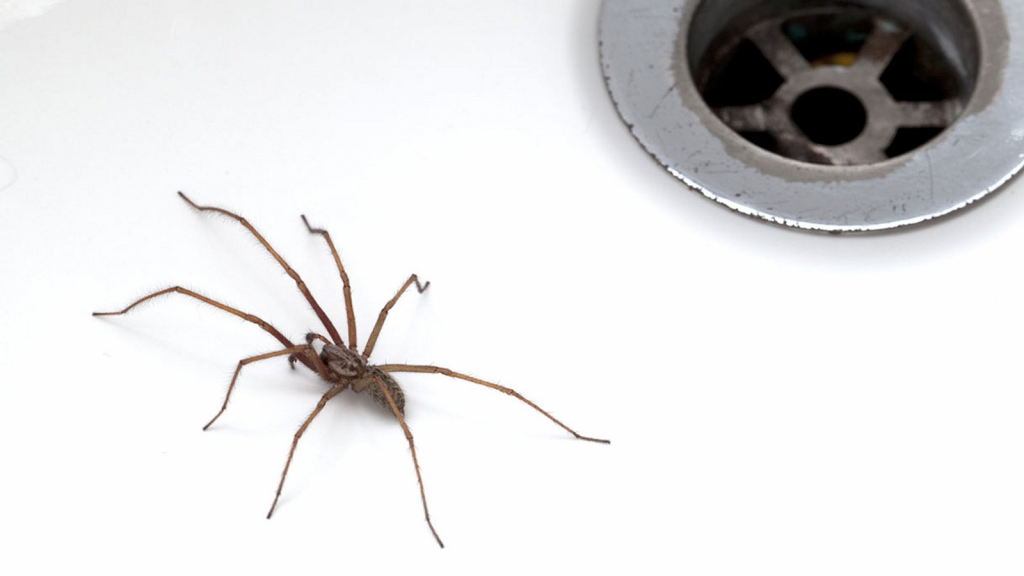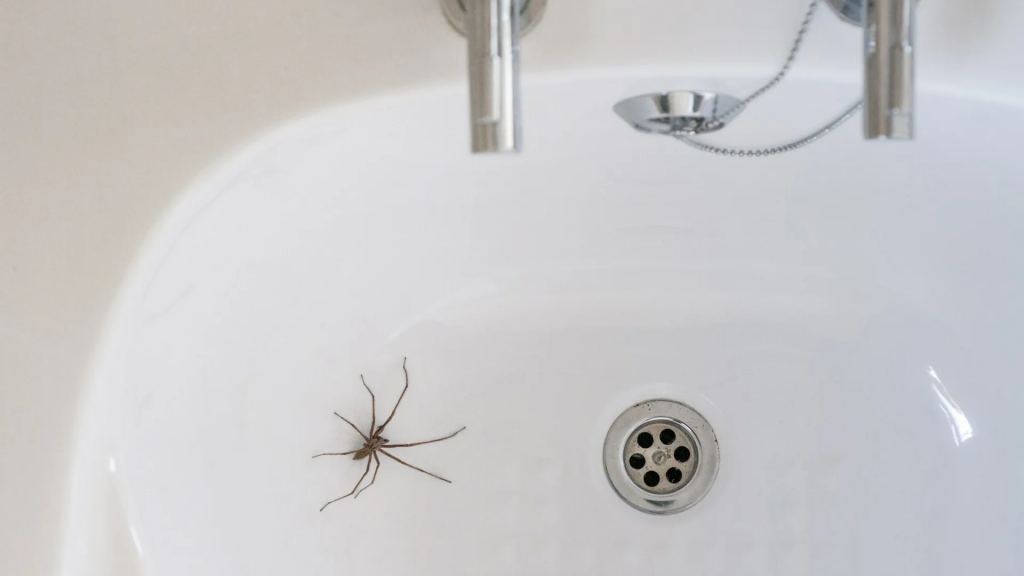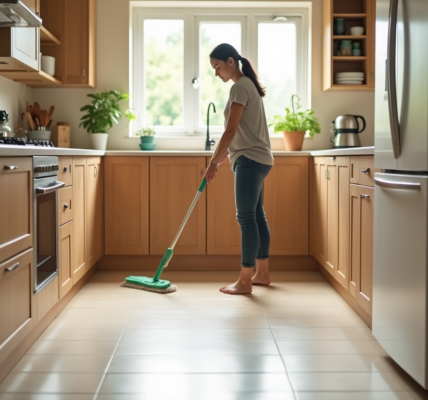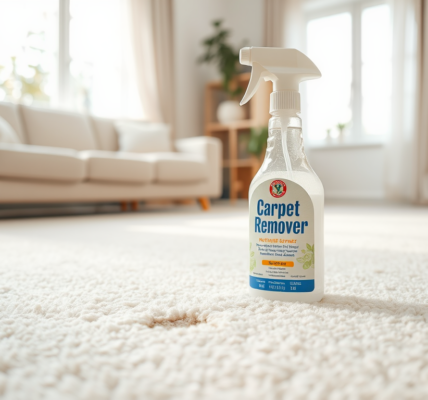Encountering a spider in your bathroom is not an unusual occurrence, but for many, it’s an unwelcome one. Spiders enter our homes for a variety of reasons, often seeking shelter and moisture—conditions that are typically met in bathroom environments. This article outlines actionable steps you can take to keep spiders away and ensure that your bathroom remains a spider-free zone. From natural spider repellents to creating less inviting conditions, we’ll explore the most effective ways to prevent spiders from making themselves at home in your spaces.

Understanding the Attraction
Many wonder why spiders are often found in bathrooms more than other rooms in the house. The answer primarily lies in the high humidity levels that bathrooms provide. Spiders not only need water to survive but also prefer the moist environment for nesting. Additionally, bathrooms are typically less trafficked by humans, giving spiders tranquil spaces to build webs and hunt. Understanding this attraction is crucial—it informs how we can create conditions that are less appealing to these arachnids.
The Role of Humidity and Water in Spider Infestations
Water from showers, baths, and sinks consistently keeps the bathroom environment humid, which attracts not just spiders but other pests as well. Damp areas often lead to a chain reaction: where there’s consistent moisture, there’s likely to be an insect population, and this, in turn, provides a food supply for spiders. Reducing humidity levels and keeping bathrooms clean not only makes the area less inviting for spiders but helps keep their food sources away too.
Practical Prevention Measures
Maintaining a cleaning schedule is one of the most effective ways to deter pests from setting up camp in your bathroom. Doing so regularly removes potential spider hiding spots, including any early attempts at building webs. Not liking to be disturbed, spiders will be less inclined to stay in a space that is cleaned frequently. Ensuring your bathroom is kept free of clutter also helps in removing those dark, undisturbed hiding spaces that spiders and other insects prefer.
The Importance of Decluttering
Removing items from the bathroom that are not necessary can greatly reduce the hiding spots for spiders. This could mean reassessing what is stored in your bathroom cabinets or on shelving. Bathroom items can often be reduced or stored in sealed containers to prevent spiders from finding a secluded home. For example, rarely used bath products could be stored away from the bathroom altogether.
Essential Cleaning Practices
When cleaning, focus on corners, behind the toilet, and under the sink—common spider hiding places. Using a vacuum cleaner not only removes webs and egg sacs but also sucks up any spiders present. Regularly wiping down surfaces with disinfectant will also help prevent the buildup of bacteria, which can attract other types of insects, providing a food source for spiders.
Sealing Entry Points
Keeping your bathrooms clean also involves sealing cracks and other openings that spiders and other pests could use to enter your space. Inspect your bathroom for any small gaps, especially around windows and doors, which could provide easy entry for spiders. Sealing these gaps will help prevent not only spiders but also other bugs from coming inside.
Identifying Common Spider Entryways
Spiders can enter through a variety of ways: foundational cracks, gaps in door frames, or even through air vents. Taking note of any daylight seeping through closed doors or windows can indicate there are openings big enough for spiders to pass through. Sealing these cracks and openings is critical in pest prevention.
Effective Sealing Techniques
For sealing gaps and cracks, a few easy and effective methods can be employed:
- Caulking around window frames and baseboards.
- Applying weather stripping to doors.
- Using mesh screens over vents and windows.

Natural Deterrents and Repellents
Essential oils are a popular choice when it comes to natural spider repellents. Not only do they keep spiders away, but they also add a pleasant scent to your bathroom. Spiders hate the strong smells of certain essential oils, which can effectively deter them from setting up shop in your space.
Best Oils for Spider Prevention
The most effective essential oils for repelling spiders include peppermint, tea tree, and eucalyptus. You can create a homemade repellent spray by adding a few drops of these oils to water and spraying in corners and potential hiding places. Doing so not only repels spiders but also ensures a fresh and clean aroma in the bathroom.
Utilizing Vinegar and Citrus Solutions
Another natural spider deterrent is vinegar. Its acidic nature is abrasive to spiders, and its strong scent is a good way to keep them at bay. Similarly, citrus scents will repel spiders, as they dislike the smell. You could try wiping down surfaces with a diluted solution of water and vinegar or placing citrus peels in areas often frequented by spiders.
When to Seek Professional Help
If despite taking these preventative measures, you’re still encountering a large number of spiders, you might need to consider professional pest control assistance. Signs that indicate a more serious infestation include spotting multiple webs, seeing spiders regularly, or finding numerous egg sacs. In such cases, seeking professional help is advisable to ensure that the issue is taken care of effectively and safely.
Spotting Spider Eggs and Nests
Egg sacs usually look like small silken balls and are often found in dark, secluded areas. Regularly removing webs and any eggs you find will help control the number of spiders hatching in your bathroom. If you come across an unusually large number of egg sacs, it could indicate an infestation which might warrant professional help.
When Spiders Signal Other Problems
Occasionally, an abundance of spiders could signal underlying issues, such as moisture problems leading to mold or unseen gaps allowing other insects in. Here is a concise table highlighting scenarios when you might want to seek expert advice:
| Scenario | Reason for Concern | Recommended Action |
|---|---|---|
| Frequent sightings of spiders | Potential infestation or high prey availability | Assess for and seal potential entry points, contact professional pest control |
| Multiple egg sacs discovered | High reproduction rate, increasing population | Regular cleaning, if pervasive, consider professional extermination |
| Presence of venomous species | Health risk to occupants | Immediate professional pest control intervention |

Conclusion
In conclusion, preventing spiders from taking up residence in your bathroom is a multi-faceted approach involving maintaining cleanliness, controlling humidity, sealing up entryways, and potentially using natural deterrents. By staying vigilant and adopting these measures, you can greatly reduce the likelihood of a spider infestation and maintain a comfortable and arachnid-free bathroom environment.
FAQs
Below are some frequently asked questions regarding spider prevention in bathrooms:
Q1: Are spiders in the bathroom a sign of a bigger pest problem?
A1: Not necessarily. Spiders often enter homes seeking shelter or food, and the bathroom’s humidity may attract them. However, if you notice an excessive number of spiders, it might indicate the presence of other insects they prey on.
Q2: What are the most effective essential oils to deter spiders?
A2: Peppermint, tea tree, and lavender oils are acknowledged for their spider-repellent properties. A few drops mixed with water can be sprayed in problem areas to discourage spiders from settling.
Q3: How often should I clean my bathroom to keep spiders away?
A3: A regular weekly cleaning routine is recommended. However, in areas prone to spiders, more frequent cleaning may be necessary to ensure webs and potential spider eggs are removed promptly.
Q4: Can a dehumidifier help in spider prevention?
A4: Yes, a dehumidifier can play a role in reducing the moisture levels in your bathroom, making it less inviting to spiders that thrive in moist environments.
Q5: Is it safe to use vinegar as a spider repellent around children and pets?
A5: Vinegar, being a natural substance, is generally safe to use around children and pets, provided the area is well-ventilated and skin and eye contact are avoided.










